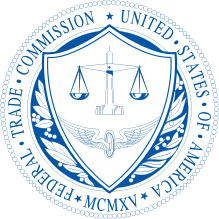The FTC Ramps Up Privacy Enforcement
Following increased congressional scrutiny over its data privacy enforcement practices in 2018, the FTC has ramped up its enforcement actions in recent months, giving some real bite to current federal privacy laws:
- On February 27, 2019 the FTC filed a complaint against the operators of lip-syncing app Musical.ly—now known as TikTok – for failing to seek parental consent before collecting the personal information of users under the age of 13. In response to the FTC’s complaint, TikTok agreed to pay a $5.7 million settlement to the agency, marking the largest-ever COPPA fine in US history.
- Throughout March, the FTC obtained settlements against 4 separate robocall operations: NetDotSolutions, Higher Goals Marketing, Veterans of America, and Pointbreak Media. These cases charged these separate entities for violations of the FTC Act (unfair and deceptive trade practices) and the agency’s Telemarketing Sales Rule (TSR) – including its Do Not Call (DNC) provisions.
- On March 26, 2019 the FTC announced a broad inquiry into the data collection practices of broadband companies under Section (b) of the FTC Act. The agency issued orders to AT&T Inc., AT&T Mobility LLC, Comcast Cable Communications doing business as Xfinity, Google Fiber Inc., T-Mobile US Inc., Verizon Communications Inc., and Cellco Partnership doing business as Verizon Wireless, seeking information about the collection, retention, and sharing of personal information. The FTC investigation highlights recent consumer concerns about data privacy and tracking by ISPs, following high-level acquisitions of content providers like AOL, Yahoo, and DirectTV. We are watching closely, as this may be the start of one of the first joint privacy-antitrust enforcement actions by the FTC.
These enforcement actions highlight the FTC’s role as the de facto data protection authority for the United States. Yet, the FTC’s mandate extends far beyond data privacy, and includes regulatory authority over false advertising claims, anticompetitive behavior, and merger review. While Congress continues to debate the passage of a federal bipartisan privacy bill, it behooves them to keep in mind the current staff and funding limitations of the FTC in any proposed drafts.

